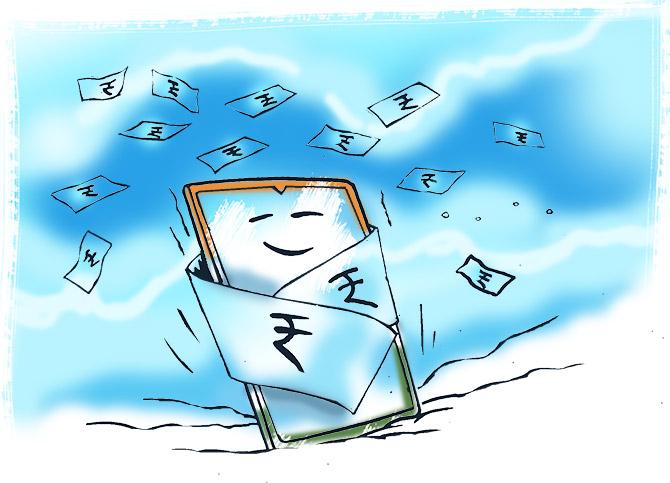After Vodafone Idea, Tata Teleservices (Maharashtra) on Tuesday said it will opt for conversion of the interest amount on AGR dues into equity and post conversion, the government's holding in the company is expected to be around 9.5 per cent.

The announcement of Tata Teleservices (Maharashtra) came within hours of Voda Idea also deciding to opt for converting the interest amount on AGR dues into government equity.
In a filing to the BSE, Tata Teleservices (Maharashtra) said Net Present Value or NPV of interest is expected to be nearly Rs 850 crore as per the company's estimates, subject to confirmation by the Department of Telecom (DoT).
"... pursuant to the Empowered Committee of the Board of Directors, at its meeting held on January 11, 2022, the company is expressing its desire for the conversion of the full amount of such interest related to AGR dues into equity subject to mutual agreement on the terms and conditions," the filing said.
The conditions include those related to the governance of the company post conversion of the interest amount into equity shares and various regulatory/legal provisions, it added.
The company will communicate the decision to the DoT.
"Following conversion, it is expected that the government will hold approximately 9.5 per cent of the total outstanding shares of the company," it said.
The average price of the company's shares at the relevant date of August 14, 2021 as per the calculation method provided in the DoT communication works out to be about Rs 41.50 per share, subject to final confirmation by the DoT, as per the filing.
According to the filing, in case of conversion, it will result in dilution of stakes of all the existing shareholders of the company, including the promoters.
Earlier, DoT had given telcos' a time period of 90 days to exercise the option of converting the interest that would accrue on installment payment during the moratorium period into equity.
As on September 2021, promoters and promoter group held about 74.36 per cent stake in the company while public shareholding was pegged at 25.64 per cent, as per data availabe on BSE website.
On Tuesday, Tata Teleservices (Maharashtra) shares closed at Rs 291.05 apiece on BSE, 5 per cent higher than the previous close.
The company's Adjusted Gross Revenue (AGR) dues stood at Rs 16,798 crore, of which the company has already made payment to the tune of Rs 4,197 crore.
On October 29, 2021, the company had stated that it will avail the option for deferment of AGR-related dues by a period of four years with immediate effect.
Vodafone Idea Ltd (VIL) too has decided to opt for converting about Rs 16,000 crore interest dues liability payable to the government into equity which will amount to around 35.8 per cent stake in the company.
If the plan goes through, the government will become the biggest shareholder in the company which is reeling under a debt burden of about Rs 1.95 lakh crore.
Last week, telecom operator Bharti Airtel made it clear that it will not avail the option of conversion of the interest on deferred spectrum and AGR dues to equity offered under the reforms package.
The telecom sector had got a shot in the arm with the government last year approving a blockbuster relief package that included a four-year break for companies from paying statutory dues, permission to share scarce airwaves, change in the definition of revenue on which levies are paid and 100 per cent foreign investment through the automatic route.
The government had also given telcos the option to convert the interest amount pertaining to the moratorium period into equity.
In a note on VIL on Tuesday, CLSA said that even after relief, the company will likely "struggle" to fund annual spectrum payments beyond an additional four-year moratorium unless ARPU (Average Revenue Per User) reaches Rs 250-300.
"At the end of the four-year moratorium, there will also be an option to convert principal dues into equity, at the discretion of the government," it observed.
Credit Suisse, in a report, said its calculations show that VIL's cash flow situation would "remain stretched" even after four-year moratorium with the company needing frequent equity injections in the absence of sustained operational improvement.











 © 2025
© 2025